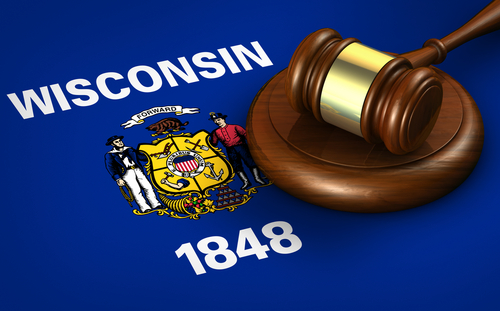 On April 5, 2018, the Wisconsin Supreme Court held that the operative event which triggers a notice of claim requirement in an underinsured motorist (UIM) policy is the tender of the tortfeasor’s underlying policy limit and not the accident itself. See Shugarts v. Mohr, 2018 WI 27. This holding overrules a published Wisconsin Court of Appeals decision which required an insured to provide notice to their carrier of a UIM claim “as soon as possible after the incident.” Shugarts v. Mohr, 2017 WI App 27, 375 Wis.2d 225, 894 N.W.2d 443.
On April 5, 2018, the Wisconsin Supreme Court held that the operative event which triggers a notice of claim requirement in an underinsured motorist (UIM) policy is the tender of the tortfeasor’s underlying policy limit and not the accident itself. See Shugarts v. Mohr, 2018 WI 27. This holding overrules a published Wisconsin Court of Appeals decision which required an insured to provide notice to their carrier of a UIM claim “as soon as possible after the incident.” Shugarts v. Mohr, 2017 WI App 27, 375 Wis.2d 225, 894 N.W.2d 443.
The accident which gives rise to this lawsuit arose out an incident that occurred on October 11, 2010 when Shugarts, a deputy sheriff, was involved in the pursuit of Mohr who was a suspect in a hit-and-run accident. Shugarts was severely injured when Mohr’s vehicle struck Shugarts’ squad car.
At the time of the accident, Mohr’s vehicle was insured by Progressive and the squad car was insured under a policy issued by Wisconsin Municipal Mutual Insurance Company (WMMIC). Shugarts also possessed a personal automobile insurance policy through Allstate which included UIM coverage.
In November of 2011, Shugarts hired an attorney who sent a demand for settlement to Progressive. However, in January 2012, Progressive denied coverage basing the denial on the assertion that Mohr’s striking of the squad car was an intentional act and thus not covered under its policy. After Progressive denied the claim, Shugarts filed a lawsuit in June 2013. Progressive continued to deny coverage but offered to settle the case for $10,000. Allstate also provided Shugarts with a declarations page from Mohr’s policy indicating that it contained bodily injury liability limits of $50,000 per person.
On October 13, 2014, Progressive changed its position on coverage and offered to pay the Shugarts policy limits of $50,000. Shugarts then sent notice to Allstate advising that he was invoking Allstate’s UIM coverage because the tortfeasor’s policy limits did not cover all of his damages. Allstate moved for summary judgment on the grounds that Shugarts “did not provide timely notice to Allstate of the October 11, 2010 motor vehicle accident as required by the Allstate policy.” In support of that claim, Allstate pointed to a “Notice of Accident” provision in the liability portion of their policy, which provided, in part, as follows:
If a person insured has an auto accident, we must be notified of all details as soon as reasonably possible…
The circuit court granted Allstate’s motion, and, in a published opinion, the Court of Appeals affirmed. See 2017 WI App 27.
The Supreme Court, however, reversed in a unanimous opinion authored by Justice A.W. Bradley. The Court carefully dissected Allstate’s policy, and first held that “[a] reasonable insured reading the policy would likely conclude that the provisions located in the liability section apply in the liability section only.” The Court thus concluded that the “Notice of Accident” provision in the liability section of the policy did not apply to a UIM claim.
The Court next looked at a provision entitled “Proof of Claim; Medical Reports” which was included in the UIM portion of Allstate’s policy. That provision provided, in part, as follows:
As soon as possible, you or any other person making claim must give us written proof of claim. It must include all details we may need to determine the amounts payable…
The question that needed to be answered by the Court was when a UIM “claim” existed so that Shugarts was required to give notice of the claim to his UIM carrier. In another words, the Court needed to identify the operative event triggering the proof of claim provision.
To answer that question, the court noted that the UIM policy required an insured to first exhaust the tortfeasor’s liability limits by payment of full policy limits in order to trigger any duty to pay UIM benefits. Giving effect to this exhaustion clause, the Court concluded that the operative event triggering the notice requirement in plaintiff’s UIM policy was, therefore, the “tender of the tortfeasor’s underlying policy limit” and not the accident. The Court essentially held that no UIM “claim” existed until after the tortfeasor’s full policy limits were paid.
The Court also distinguished Wisconsin case law addressing notice of uninsured motorist (UM) coverage, which is a “first dollar” claim, unlike UIM coverage, which is excess coverage. Here the plaintiff sent Allstate notice of the UIM claim just 15 days after the tortfeasor’s insurer tendered its policy limits. Consequently, the Court determined that the plaintiff provided Allstate with timely proof of their UIM claim as the policy language dictated.
Finally, the court rejected Allstate’s contention that the timing of the notice is governed by Wis. Stat. § 631.81(1). The Court noted that the statute’s text only “directs the reader back to the policy”.
If you have any questions about this article or any insurance coverage issues, please contact Doug Lehrer at dlehrer@mwl-law.com.






